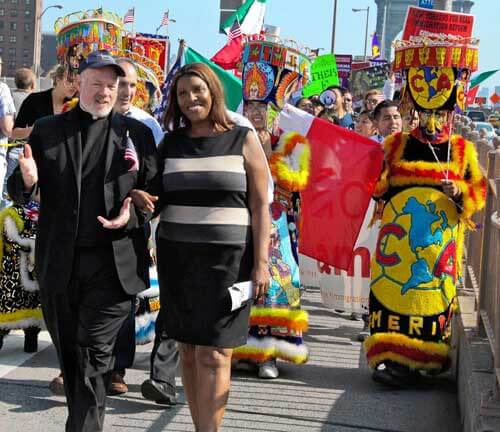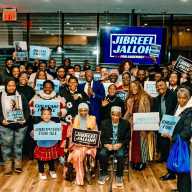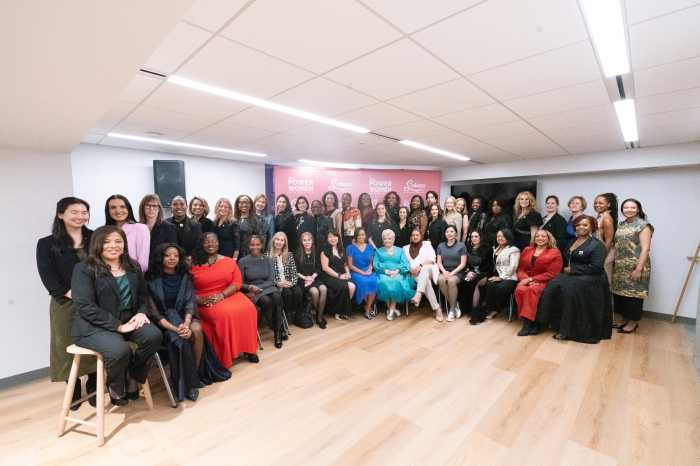The morning after Donald Trump was elected into office, I was on the No. 2 train from Brooklyn, heading to Immigration Court on Varick Street — I am an organizer for the Black Alliance for Just Immigration (BAJI). The election results and dreary weather were mirrored in the facial expressions of the people on the train, most of them West Indian immigrants from Flatbush. Although the train was packed, the silence was profound.
When I arrived at the court, I met with a defendant named Kevin, a Jamaican immigrant who came to the United States when he was just three years old and hasn’t gone back since. His mother was deported a few years ago and his undocumented status has kept him in the shadows, making steady employment and stable housing hard to come by. He has been in and out of homeless shelters since the late 2000’s, so having to survive on the streets, he accrued two misdemeanors, and once pled guilty at the behest of his public defender to a false charge.
Fortunately, Kevin was able to get representation from Brooklyn Defender Services (BDS) through the city’s New York Immigrant Family Unity Project (NYIFUP). They put up a strong defense and by the next hearing, Kevin was released.
Although Kevin isn’t out of the woods yet, the defense he got thanks to NYIFUP, kept him from being deported to a country where he has few family ties. In a city where over-policing acutely affects black and brown communities, NYIFUP is now one of the few buffers between the undocumented and Trump’s agenda. In its first two and one-half years, NYIFUP has provided deportation defense to 256 immigrants from the following English – and French or Creole-speaking Caribbean countries (in order of frequency): Jamaica, Haiti, Trinidad and Tobago, Guyana, Barbados, Belize, St. Vincent, St. Lucia, French Guiana, St. Kitts and Nevis, Grenada, British Virgin Islands, and Bahamas.
Undocumented migrants are not entitled to government-funded legal representation and they often don’t receive due process. NYIFUP fills an important gap, helping to keep the immigrant community safe.
I have found that those we work with who have orders of removal on criminal grounds are usually non-violent, low-level offenders. One does not need to have been convicted to get on ICE’s radar and many who are currently detained were identified by ICE the moment they were arrested and fingerprinted.
NYIFUP’s success has been proven. In a recent evaluation, the Vera Institute of Justice found that having legal representation in deportation proceedings can increase the likelihood of success for clients who otherwise would have gone unrepresented. Without NYIFUP, immigrant New Yorkers who could not afford a lawyer had only a 4 percent success rate in court. With NYIFUP the success rate increases to 48 percent. If those numbers indicate anything, it’s that the city should be seeking to invest more into the program. Without NYIFUP, immigrant New Yorkers and their families are left alone to navigate an unfamiliar system rife with discrimination and language barriers. Without access to legal representation, many immigrants will opt not to show up to court in order to avoid being taken into custody by ICE.
If New York is to live up to the image of a progressive and diverse society it professes to be, it must also support policies and programs reflecting that, and go beyond slogans and platitudes.























